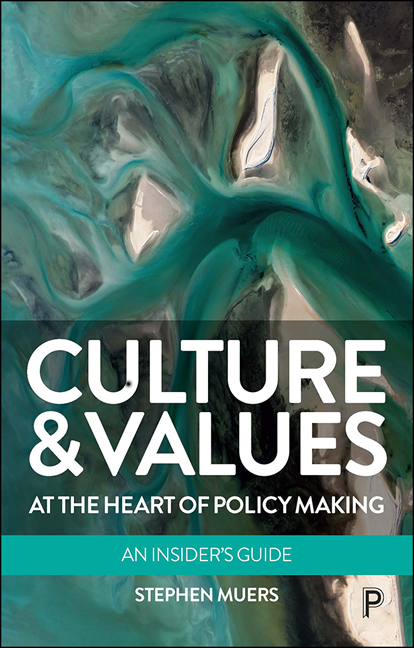Book contents
- Frontmatter
- Dedication
- Contents
- About the Author
- Acknowledgements
- Introduction
- 1 What are Culture and Values?
- Part One Why Culture and Values Matter for Public Policy
- Part Two How Culture and Values Shape the Political System
- Part Three How Policy Makers can Take Culture Seriously
- Conclusion
- Notes
- References
- Index
4 - Arguments About Values and the Purpose of Democracy
Published online by Cambridge University Press: 18 March 2021
- Frontmatter
- Dedication
- Contents
- About the Author
- Acknowledgements
- Introduction
- 1 What are Culture and Values?
- Part One Why Culture and Values Matter for Public Policy
- Part Two How Culture and Values Shape the Political System
- Part Three How Policy Makers can Take Culture Seriously
- Conclusion
- Notes
- References
- Index
Summary
This chapter considers a different reason for putting culture and values at the heart of policy making. It moves away from the issues of whether policies work or not, and whether people accept them. Instead, it focuses on looking more deeply at the purpose of politics in a democratic society, and the central place that values have in determining that.
Values determine the realm of politics
Why are some questions political and others not? Open a newspaper or log on to a news website and there will be a section called ‘politics’ which covers what is going on in political institutions: the latest news from an election campaign or what is being debated in Congress or Parliament. Then in other sections there will be coverage of events that still have a strong political component: perhaps whether a new medical treatment will be publicly funded, or a report on endangered wildlife that leads to debate on the effectiveness of policies for environmental protection. There will then also be a whole set of stories with no political content at all, about interesting happenings in entertainment, sport and everyday lives.
It seems obvious and natural that politics comes into some spheres and not others. But what counts as ‘political’ doesn't stay the same. It differs over time and between countries. To illustrate how the content of political debate changes, I looked at Hansard to see what the British House of Commons was debating exactly 150 years to the day before I was writing the first draft of this chapter. On 13 July 1868 the main issue before the House was the Royal Navy. The Navy's overall budget or strategy would still be seen as important political issues today, but this debate had a very different focus. Members of Parliament were discussing, in an extraordinary level of detail, the design and performance of different types of ship. One Member, Captain MacKinnon, was very concerned that ‘main deck outside the battery’ of one type of vessel ‘was only plated with iron 5–16ths of an inch thick’. Others discussed the maximum speed of a new ship design in different wind conditions. I imagine the engineers responsible for building hugely complex modern warships are grateful that the number of sixteenths of an inch involved in the armour plating is a matter for technical analysis by them rather than debate in the House of Commons.
- Type
- Chapter
- Information
- Culture and Values at the Heart of Policy MakingAn Insider's Guide, pp. 43 - 56Publisher: Bristol University PressPrint publication year: 2020



